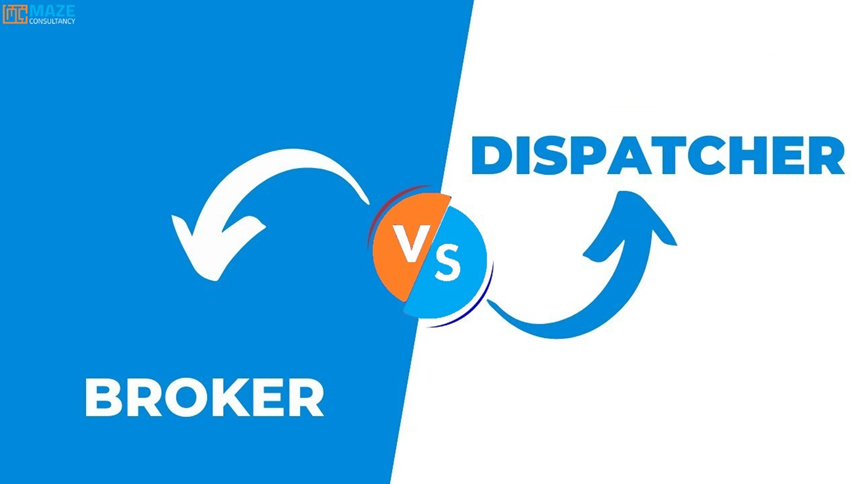Certainly! Let’s dive into the detailed distinctions between dispatchers and brokers, examining their roles, responsibilities, and the contexts in which they operate.
Dispatchers
Definition and Role:
Dispatchers are professionals who manage and coordinate the movement of resources and personnel to ensure efficient operations. They are crucial in industries where logistics and real-time coordination are vital. Their main job is to oversee the operational aspects of service delivery, ensuring that tasks are completed as planned.
Key Responsibilities:
- Scheduling and Allocation:
- Dispatchers create schedules and allocate resources, such as vehicles, drivers, or field workers, to various tasks or routes. This involves planning routes, managing time slots, and ensuring that resources are used optimally.
- Coordination:
- They act as the main point of contact between the operational team (e.g., drivers or service personnel) and the central office or dispatch center. This involves communicating instructions, providing updates, and resolving any issues that arise during operations.
- Problem Resolution:
- When unexpected problems occur, such as delays, vehicle breakdowns, or personnel issues, dispatchers are responsible for finding quick solutions to minimize disruptions.
- Monitoring and Tracking:
- Dispatchers keep track of the progress of deliveries or services in real-time. They use various tools and technologies to monitor locations, status updates, and ensure adherence to schedules.
Typical Contexts:
- Transportation and Logistics:
In the trucking industry, dispatchers oversee the movement of freight, ensuring that shipments are delivered on time and managing the logistics of loading and unloading. - Emergency Services:
In public safety, dispatchers coordinate emergency response teams, managing the deployment of police, fire, or medical services in response to emergencies.
Brokers
Definition and Role:
Brokers serve as intermediaries who facilitate transactions between buyers and sellers or service providers and clients. They specialize in connecting parties who have something to offer with those seeking those goods or services. Their primary role is to negotiate deals, ensure smooth transactions, and provide market insights.
Key Responsibilities:
- Negotiation and Mediation:
- Brokers negotiate terms and conditions between parties involved in a transaction. They work to find mutually acceptable terms, handle price discussions, and ensure that both parties reach a satisfactory agreement.
- Matching Needs with Services:
- They identify and match the requirements of clients with the appropriate service providers or products. This involves understanding the needs of one party and finding a suitable match from the available options.
- Transaction Management:
- Brokers manage the administrative aspects of transactions, including drafting contracts, handling paperwork, and processing payments. They ensure that all aspects of the deal are completed smoothly and in compliance with regulations.
- Market Expertise:
- They provide clients with valuable insights into market trends, pricing, and available options. Their knowledge helps clients make informed decisions and navigate complex markets.
Typical Contexts:
- Freight Brokerage:
Freight brokers connect shippers who need to transport goods with carriers who can provide transportation services. They manage the logistics and documentation involved in shipping, ensuring that both parties fulfill their obligations. - Real Estate:
Real estate brokers assist clients in buying, selling, or renting properties. They facilitate property transactions by coordinating with buyers and sellers, managing negotiations, and handling the paperwork involved in real estate deals.
Summary of Key Differences
- Focus:
- Dispatchers concentrate on the operational side of service delivery, ensuring that logistics and real-time coordination are managed effectively.
- Brokers focus on facilitating transactions between parties, managing negotiations, and providing market expertise.
- Responsibilities:
- Dispatchers handle scheduling, coordination, problem-solving, and tracking within operational contexts.
- Brokers manage negotiations, match clients with services, oversee transaction processes, and offer market insights.
- Interaction:
- Dispatchers typically interact with operational staff, such as drivers or field personnel.
- Brokers interact with clients, service providers, and sometimes other intermediaries to facilitate deals.
These distinctions highlight how each role contributes to their respective fields, with dispatchers ensuring efficient operational execution and brokers facilitating smooth transactions and market interactions.
























